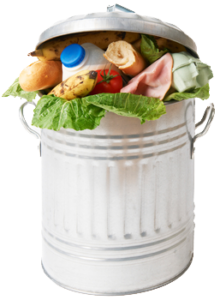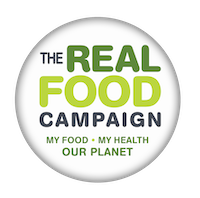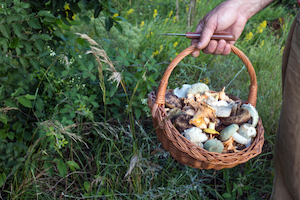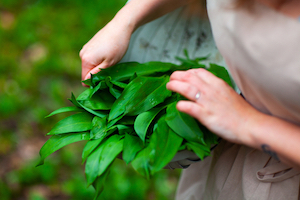We believe healthy, sustainable and AFFORDABLE Real Food should be accessible to all in the UK. However, changes will need to be made at a national policy level and we will be campaigning for change; we are optimistic The National Food Strategy will play an important and positive role.
There are things we can each do now though, as consumers, to improve the quality of our diet and eat more Real Food, even on a budget.
This page will help us get a better understanding of how issues like (so-called) cheap food and food waste can harm our health and cost us and the planet in other ways.
We’ll also take a practical look at how we can shop healthy on a budget, access ‘free-food’, and get more ‘bang-from-our-food-bucks’.
Some of the Issues
The True Cost of Food
We pay for food in many ways, not just at the checkout; but the true cost varies according to how food is produced and how this impacts our health and the environment. The Hidden Cost of UK Food report was published in 2017 and revised in 2019. It found that for every £1 we spend at the checkout, we spend another £1 in hidden ways.
Find out more about “True Cost Accounting” from the Sustainable Food Trust
Though some people struggle to afford food, we in the UK are actually spending 50% less on food as a proportion of our household income than in the past. Only around 8% of our budget goes on food eaten in the home which is less than any other country apart from the US and Singapore!
- Why the UK has such cheap food BBC news, October 2018
Food Waste
 Food waste not only affects our pockets, with up to 50% being thrown away in the home. With around 30% of all food produced globally lost or wasted across the food system, it is also an ethical & sustainability issue.
Food waste not only affects our pockets, with up to 50% being thrown away in the home. With around 30% of all food produced globally lost or wasted across the food system, it is also an ethical & sustainability issue.
For more on this topic:
Food Justice
Food Justice is when everyone has access to nutritious, affordable and culturally appropriate food, which is grown, produced, sold and consumed in ways that care for people and the environment.
For more on this topic:
Some of the Solutions
We hope we may have inspired you to prioritise healthy food and consider spending more of your disposable income on high quality, nutrient-dense food. However, if you are on a tight budget below are some ideas for a better diet without spending more.
Getting more phytonutrients – on a budget
 Phytonutrients are plant chemicals that help our bodies stay healthy in many ways. They give colour and taste to our plant foods so one simple way to ensure a phytonutrient dense diet is to eat a rainbow and choose the most colourful and tasty varieties.
Phytonutrients are plant chemicals that help our bodies stay healthy in many ways. They give colour and taste to our plant foods so one simple way to ensure a phytonutrient dense diet is to eat a rainbow and choose the most colourful and tasty varieties.
However there are also some surprising tips that can help you get more ‘bang for your buck’ which we will share soon. For now check out James Wong’s website.
For more on this topic, visit our Diversity page
Food for Free
You may not wish to become a Freegan but most of us could try our hands at a little gentle foraging. Wild foods are often packed with phytonutrients and minerals.
Why not check out Eatweeds for inspiration.
Or set up a community orchard check out what Wellington Transition Towns food group have done with their Foraging Map.
Shopping on a Budget
We hope to bring you blogs and tips soon. For now check out the BANT infographic below (click for the PDF) and visit our Buyers Guide page.




